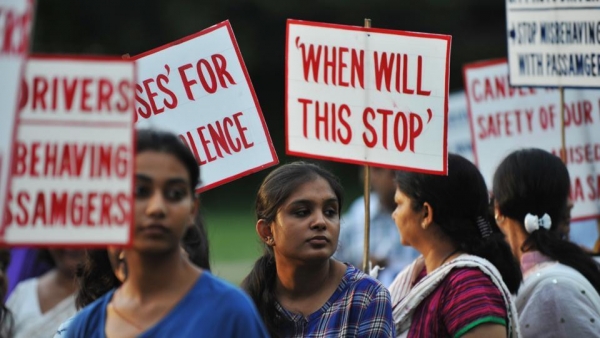In the wake of outrage over the brutal rape and murder of a minor in Kathua, Jammu & Kashmir, the Union Cabinet headed by Prime Minister Narendra Modi today approved an ordinance to allow courts to pronounce the death penalty to those convicted of raping children up to 12 years of age.
The criminal law amendment ordinance seeks to amend the Indian Penal Code (IPC), the Evidence Act, the Code of Criminal Procedure (CrPC) and the Protection of Children from Sexual Offences (POCSO) Act to introduce a new provision to sentence convicts of such crimes to death.
Today's ordinance approved by the Cabinet also prescribes the minimum punishment in case of rape of women to increase from rigorous imprisonment of 7 years to 10 years, extendable to life imprisonment. In case of rape of a girl under 16 years, minimum punishment has been increased from 10 years to 20 years, extendable to imprisonment for rest of life, which means imprisonment till that person’s natural life.
For speedy trial of rape cases, new fast track courts will be set up in consultation with States/UTs and High Courts.
The ordinance also prescribes that there will be no provision for anticipatory bail for a person accused of rape or gang rape of a girl under 16 years.
The ordinance is being initiated to enforce the amendment immediately before a bill is introduced and passed by Parliament. After the case of the eight-year-old Kathua victim, other instances, such as in Surat where a nine-year-old was raped and killed, have added urgency to the government’s actions.
The ordinance would be now sent to the President for his approval.
Existing provisions of the POCSO Act provide for life imprisonment, though after the Nirbhaya case in 2012 the Centre had introduced the death penalty in cases where a woman either dies or is left in a vegetative state after rape.
The Cabinet meet follows the Centre informing the Supreme Court on Friday that it proposed to amend POCSO to provide for the death penalty for aggravated sexual assaults on children below 12. (Times of India)










